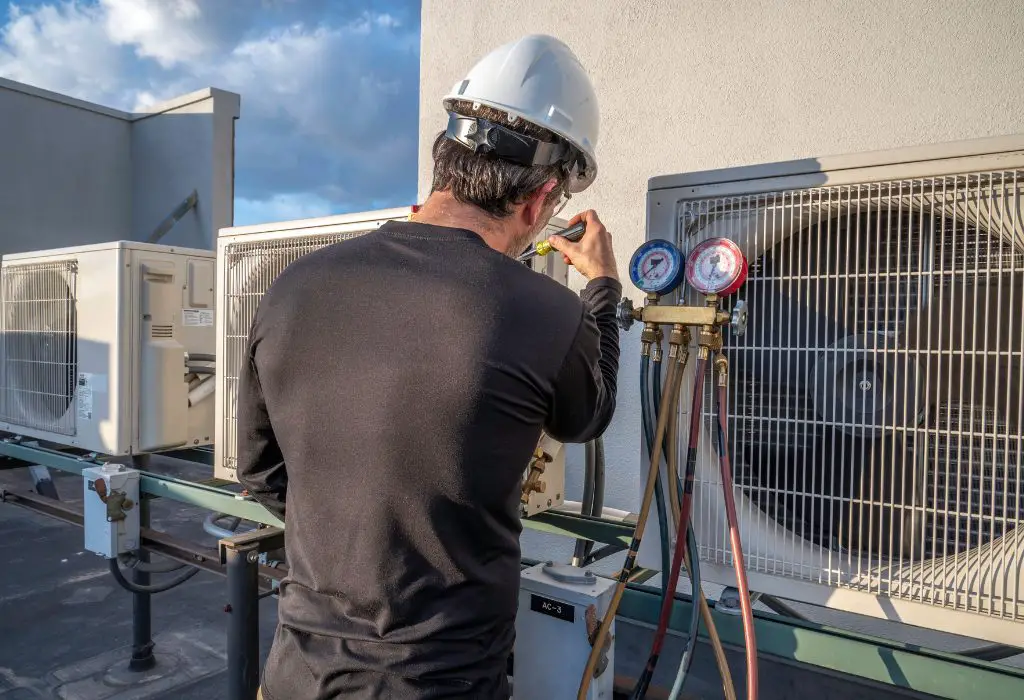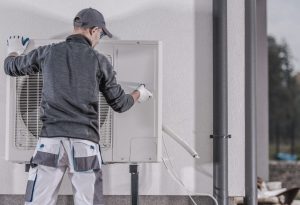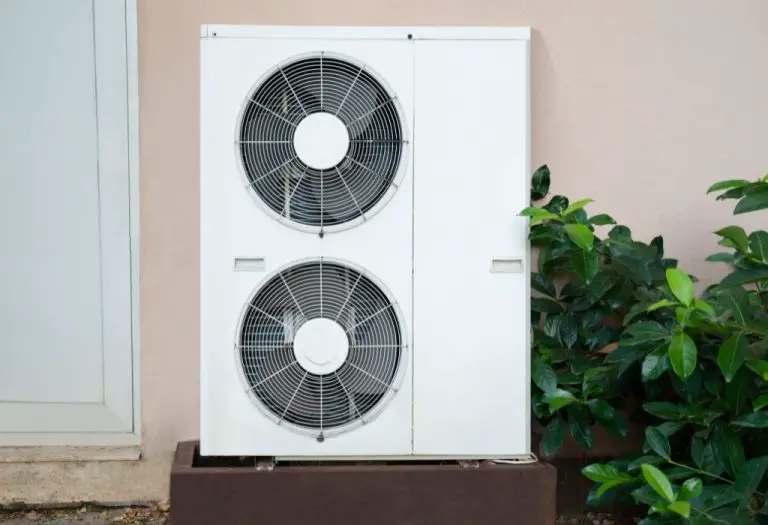When your air conditioning (AC) unit starts to act up, it can be difficult to know whether it’s time to repair or replace it. There are several factors you need to consider when making this decision. Some of the most important ones are given below:
Age of the AC unit
The age of your AC unit is a crucial factor to consider when deciding whether to repair or replace it. Generally, AC units last for 10-15 years, depending on how well they are maintained. If your unit is less than 10 years old and has not had major issues, it’s usually best to repair it. However, if your unit is older than 15 years and has had multiple breakdowns, it’s usually more cost-effective to replace it.
Frequency and severity of breakdowns
If your AC unit is breaking down frequently, it might be time to consider replacing it. Frequent breakdowns can be a sign that your unit is nearing the end of its life, and you may end up spending more money on repairs than a replacement would cost. Additionally, if your AC unit experiences severe breakdowns that require significant repairs, it might be time to replace it. Severe breakdowns can also be a sign that your AC unit is at the end of its life.
Efficiency of the AC unit
The efficiency of your AC unit is another important factor to consider when deciding whether to repair or replace it. If your unit is older, it may not be as energy-efficient as newer models. Newer models are designed to be more energy-efficient, which means you could save money on your energy bills by replacing your old unit with a new one. If your unit is still relatively new, you may want to consider repairing it rather than replacing it, as it’s likely still efficient enough to provide adequate cooling.
AC repair cost vs. cost of replacement
Finally, you need to consider the cost of repairs versus the cost of replacement. If the cost of repairing your AC unit is more than 50% of the cost of a new unit, it’s usually more cost-effective to replace it. However, if the repair cost is less than 50% of the cost of a new unit, it’s usually best to repair it. Additionally, you need to factor in the long-term costs of owning an old unit versus a new one. New units are likely to be more energy-efficient, which means you could save money on your energy bills in the long run.
Pros and Cons of Repairing Your AC Unit
AC units are an essential part of modern homes, providing comfort during hot summer months. However, like any other machine, AC units are also susceptible to wear and tear and may require repairs over time. While repairing an AC unit can be beneficial, it’s also essential to weigh the pros and cons to make an informed decision.

Benefits of AC Repair | Drawbacks of AC Unit Repair |
✅ Cost-effective: Repairing your AC unit can be more cost-effective than replacing it entirely. ✅ Extend Lifespan: Repairing your AC unit can extend its lifespan, ensuring that you get more value for your money. ✅ Improved efficiency: AC units that are repaired often operate more efficiently, resulting in lower energy bills. ✅ Increased Comfort: Repairing your AC unit ensures that it functions optimally, providing increased comfort in your home. ✅ Reduced Environmental Impact: Repairing your AC unit reduces your environmental impact by keeping it out of landfills. ✅ Immediate Solution: Repairing your AC unit is a quicker solution than replacing it, which can take days or even weeks. ✅ Familiarity with System: If you have repaired your AC unit in the past, you may be familiar with its workings, making repairs quicker and more efficient. | ❌ Temporary Fix: Repairing your AC unit can be a temporary fix, and it may break down again shortly. ❌ Age of AC Unit: If your AC unit is older, it may be more cost-effective to replace it entirely rather than repairing it. ❌ Higher Energy Bills: Older AC units may use more energy than newer models, resulting in higher energy bills. ❌ Cost of Repair: The cost of repairing your AC unit may be higher than the cost of a new unit in some cases. |
Pros and Cons of Replacing Your AC Unit
Replacing your AC unit is a significant investment, but it can also provide many benefits. If your AC unit is old and requires frequent repairs, it may be time to consider replacing it. Here are some pros and cons of replacing your AC unit to help you make an informed decision.

Benefits of AC Replacement | Drawbacks of AC Replacement |
✅ Improved Efficiency: New AC units are often more energy-efficient, resulting in lower energy bills. ✅ Increased Value: Installing a new AC unit can increase the value of your home if you decide to sell it in the future. ✅ Fewer AC Repairs: New AC units require fewer repairs, saving you money in the long run. ✅ Reduced Noise: New AC units operate more quietly than older units, providing a more peaceful home environment. ✅ Better Technology: New AC units come with improved technology, including smart thermostats and remote control features. | ❌ High Cost: The cost of a new AC unit can be high, making it a significant investment. ❌ Installation Time: Installing a new AC unit can take longer than repairing an existing unit, resulting in temporary discomfort in your home. ❌ Disruption to Home: Installing a new AC unit can cause disruption to your home, such as noise and dust from construction. ❌ Environmental Impact: The production of new AC units has an environmental impact, as old units may end up in landfills. |
Cost Comparison: AC Repair Cost vs. Replacement Cost
When it comes to repairing or replacing an air conditioning (AC) unit, one of the main considerations is cost. In this section, we will discuss the average AC repair cost as well as the average cost of AC replacement

Average AC Repair Costs
AC repair cost can vary widely depending on the type of repair needed, the age of the unit, and the geographic location. Generally, the average cost of AC repairs in the United States ranges from $150 to $500. Some common air conditioning repair services and their estimated costs are as follows:
AC Repair Service | Estimated AC Repair Cost |
Refrigerant recharge | $160 to $400 |
Thermostat replacement | $125 to $300 |
Compressor replacement | $1,500 to $2,800 |
Fan motor replacement | $400 to $800 |
Evaporator coil cleaning and repair | $159 to $1,200 |
It’s important to note that the cost of repairs can add up quickly if multiple repairs are needed, especially if the AC unit is older and prone to frequent breakdowns.
Average Cost of AC Replacement
The average cost of AC replacement in the United States ranges from $3,500 to $7,500, depending on the size of the unit and the installation costs. Factors that can affect the cost of AC replacement include:
- Size and type of AC unit
- Ductwork installation or repair
- Electrical upgrades
- Location and accessibility
- Additional features or upgrades
AC Repair Cost vs. AC Replacement Cost: Comparison Table
To make it easy for readers to understand the cost comparison, we have prepared a table below:
AC Repair | Estimated AC Repair Cost | AC Replacement Cost |
Refrigerant Recharge | $160 to $400 | N/A |
Thermostat Replacement | $125 to $300 | N/A |
Compressor Replacement | $1,500 to $2,800 | $3,500 to $7,500 |
Fan Motor Replacement | $400 to $800 | $3,500 to $7,500 |
Evaporator Coil Replacement | $650 to $1,200 | $3,500 to $7,500 |
Conclusion – Repair or Replace?
In conclusion, whether it is better financially to repair or replace your AC ultimately depends on a variety of factors, including the age and condition of your unit, the cost of AC repair, and your budget.
While repairing your AC may be a cost-effective solution in the short term, a replacement may be more beneficial in the long run, especially if your unit is outdated or has extensive damage.
Therefore, it’s important to consult with a professional HVAC technician who can assess your situation and provide personalized recommendations that will maximize your comfort and savings.
Keep in mind that regular preventive maintenance and prompt repairs can help extend the lifespan of your AC and minimize AC repair cost in the future.






